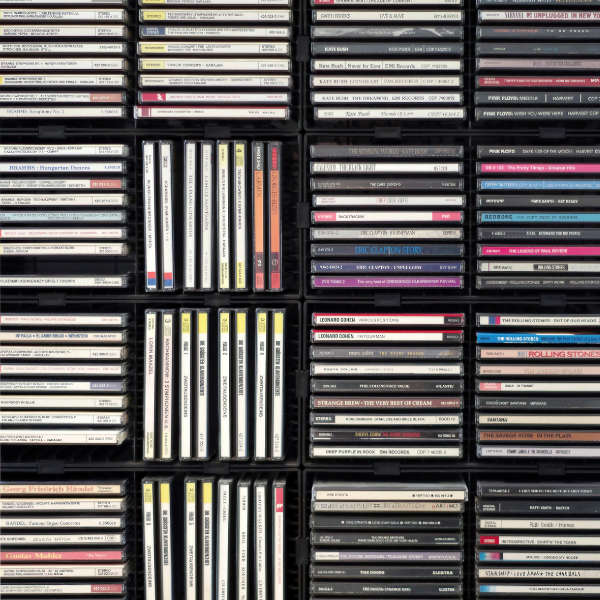Sir Keir Starmer has said stability in the Middle East is "a priority" following US strikes on Iran's nuclear facilities, as the world reacted to the attack.
The prime minister also called on Iran to "return to the negotiating table" to "reach a diplomatic solution to end this crisis".
He later told Sky News' political editor, Beth Rigby, that his focus was on "de-escalating", as there was a "risk of escalation" to the Middle East, and beyond.
The US struck three sites in Iran early on Sunday morning, with Donald Trump boasting the country's key nuclear sites were "completely and fully obliterated" in an address to the nation from the White House. He warned there could be further strikes if Iran retaliates.
Follow latest: Iran considering 'all options' after US strikes
In a statement, Sir Keir said: "Iran's nuclear programme is a grave threat to international security. Iran can never be allowed to develop a nuclear weapon, and the US has taken action to alleviate that threat.
"The situation in the Middle East remains volatile and stability in the region is a priority. We call on Iran to return to the negotiating table and reach a diplomatic solution to end this crisis."
He said the UK was not involved in the attack but was informed about them in advance.
Later, speaking to Rigby, who was interviewing the prime minister on behalf of all broadcasters, he said: "That's a risk to the region.
"It's a risk beyond the region, and that's why all our focus has been on de-escalating, getting people back around to negotiate what is a very real threat in relation to the nuclear programme."
The prime minister will chair a meeting of the government's COBRA crisis committee on Sunday afternoon.
Read more:
What we know so far about US strikes
What happens next is largely in Iran's control
Netanyahu praises Trump
Israel's Prime Minister Benjamin Netanyahu praised Mr Trump for the strikes, saying: "Your bold decision to target Iran's nuclear facilities with the awesome and righteous might of the United States will change history.
"History will record that President Trump acted to deny the world's most dangerous regime the world's most dangerous weapons."
UN secretary-general 'gravely alarmed' by US attack
But UN secretary general Antonio Guterres said he was "gravely alarmed by the use of force" by the US against Iran.
"This is a dangerous escalation in a region already on the edge - and a direct threat to international peace and security. There is a growing risk that this conflict could rapidly get out of control - with catastrophic consequences for civilians, the region, and the world."
European Union foreign policy chief Kaja Kallas urged all sides to step back and return to the negotiating table. "Iran must not be allowed to develop a nuclear weapon," she said in a post on X.
"I urge all sides to step back, return to the negotiating table and prevent further escalation," she said, adding that EU foreign ministers will discuss the situation tomorrow.
How the world reacted to the strikes
World leaders reacted to the strikes with calls for diplomacy and de-escalation, with some fearing they could push the region towards a wider conflict.
Russia's former president and current deputy chair of its security council, Dmitry Medvedev, said on the Telegram messaging app: "Trump, who came in as a peacemaker president, has started a new war for the US."
China strongly condemned the attack, with its foreign ministry saying the move seriously violates the UN charter and worsens tensions in the Middle East. It urged the parties involved to cease attacks as soon as possible and begin negotiations.
German Chancellor Friedrich Merz urged Iran to enter immediate talks with the US and Israel to find a diplomatic solution to the conflict, a government spokesperson said.
France urged all sides to show restraint, with its foreign minister Jean-Noel Barrot saying Paris is "convinced that a lasting resolution to this issue requires a negotiated solution within the framework of the Non-Proliferation Treaty".
Italy's foreign minister Antonio Tajani said after the attack that his country's government hopes "a de-escalation can begin and Iran can sit down at the negotiating table".
Cuba's President Miguel Diaz-Canel said on X: "We strongly condemn the US bombing of Iran's nuclear facilities, which constitutes a dangerous escalation of the conflict in the Middle East. The aggression seriously violates the UN Charter and international law and plunges humanity into a crisis with irreversible consequences."
Venezuela's foreign minister Yvan Gil said his country's government "condemns US military aggression" and "demands an immediate cessation of hostilities".
NATO member Turkey said the strikes raised the risk of a regional conflict spreading globally, with the foreign ministry saying the spread of the conflict into a wider global war must not be allowed.
The Iraqi government condemned the strikes, saying they create a grave threat to peace and security in the Middle East.
Saudi Arabia expressed "deep concern" but stopped short of condemning the attack.
Both Hamas in Gaza and the Houthis in Yemen - part of Iran's so-called Axis of Resistance - condemned the strikes, with the Houthis vowing to support Iran in its fight against "the Zionist and American aggression".
Lebanon's Prime Minister Nawaf Salam said his country needs to stay away from any possible regional spillover from the conflict.
Qatar said it "regrets" the escalating tensions and its foreign ministry urged all parties to show restraint and "avoid escalation, which the peoples of the region, burdened by conflicts and their tragic humanitarian repercussions, cannot tolerate".
The United Arab Emirates called for an immediate halt to the escalation to "avoid serious repercussions" in the region, with its foreign ministry warning they could lead the region to "new levels of instability".
Oman condemned the strikes, with a spokesperson for its foreign ministry warning they threaten "to expand the scope of the conflict and constitute a serious violation of international law and the United Nations charter".
Pakistan condemned the strikes as a "deeply disturbing" escalation days after it nominated Mr Trump for the Nobel Peace Prize for his diplomatic intervention in the India-Pakistan crisis.
Pope Leo appealed for peace during his Sunday Angelus prayer in St Peter's Square, calling for international diplomacy to "silence the weapons". Referring to the "alarming" situation in Iran, he urged every member of the international community to take up their moral responsibility to "stop the tragedy of war before it becomes an irreparable abyss".
Maryam Rajavi, the head of Iranian opposition group National Council of Resistance of Iran, said from Paris: "Now [Supreme Leader] Khamenei must go. The Iranian people welcome the end of the war and seek peace and freedom.
"Khamenei is responsible for an unpatriotic project that, in addition to costing countless lives, has cost the Iranian people at least $2trn (£1.5trn) - and now, it has all gone up in smoke."

(c) Sky News 2025: 'Stability in Middle East is priority,' says Starmer - as world reacts to strikes


 An Iranian attack on US military bases could draw the UK into the conflict
An Iranian attack on US military bases could draw the UK into the conflict
 Latest polling says if an election was held tomorrow Reform UK would win a majority
Latest polling says if an election was held tomorrow Reform UK would win a majority
 Palestine Action: The 'enemy within' or non-violent protesters?
Palestine Action: The 'enemy within' or non-violent protesters?
 MPs back legalising assisted dying in England and Wales after historic Commons vote
MPs back legalising assisted dying in England and Wales after historic Commons vote


